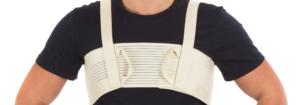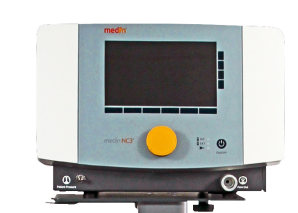- Home
- Products
- Bedding Protection
- Blood Pressure Monitoring
- Diagnostic Instruments
- ECG Products
- Footwear
- General Medical Consumables
- Protective Pants
- Labels
- Medin nCPAP Systems & Accessories
- Proctological Products
- Protective Clothing
- Pulse Oximetry
- Respiratory Care
- Electrosurgical Instruments
- Thermometry
- Ultrasound Products
- Xprecia PT/INR Testing
- Brands
- About
- How to Order
- News
- Contact
-
No items in wish list.
- Home >
- Products content only (NO INDEX) >
- What is IQoro®?
IQoro® has been developed for people that have problems with being able to breathe, eat, speak or smile, i.e. those that have dysfunctions in the face, mouth, throat, upper airways, esophagus or diaphragm.
The oral cavity can be thought of as the most tightly coupled connection to the brain.
A neuromuscular training device and regime
IQoro® is a neuromuscular training device and regime that exercises and strengthens the affected muscles and, via the oral cavity, activates the nerve system to and from the brain thus allowing it to rebuild, improve and regain its control over these functions.
- EASY TO USE
- 1½ MINS TRAINING PER DAY
- SCIENTIFICALLY-PROVEN EFFECT
Exercising with IQoro® treats:
Treats the causes of dysphagia: not just the symptoms.
Strengthens slack musculature in the tongue, soft palate, pharynx and air pathways.
Addresses the underlying causes of reflux, LPR, heartburn, sensation of a ‘lump in the chest’ or throat, persistent dry cough.
- Drooling
Improves muscle strength in the lips, face and oral cavity. Read more at Dysphagia, Swallowing difficulties – Different causes.
Strengthens the musculature, and improves or restores the brain’s control over these functions after central brain injury (stroke). Read more at Stroke or Facial paralysis.
- The ability to make speech sounds
People with indistinct speech improve their ability through strengthening the musculature in the oral cavity. Read more in the respective sections: Dysphagia, Swallowing difficulties – Different causes.
IQoro® can be used as a preventative measure to optimise the conditions for normal face-, bite, and jaw development during the growing years from 1½ years old. IQoro® can also eliminate bite abnormalities like open bite, high and narrow palate, and overbite. Read more at: Abnormal bite- and jaw development
Exercise takes 30 seconds per session, three times per day – 1½ minutes per day in total. This training makes it possible to strengthen the muscles and to improve and regain the brain’s control over them, depending upon the root cause of the muscle weakness.
Read more here: Dysphagia, swallowing difficulties – different causes, Snoring – social snoring, and sleep apnoea, or Facial paralysis.
Watch IQoro videos – This is how you exercise with IQoro®
One size – no fitting procedure
IQoro® fits everyone, irrespective of bite and jaw, because of its unique design.
It is available in two sizes:
- Small, for children from approx. 1½ to 12 years old.
- Large, for adults from approx. 12 years old and upwards.
Scientifically-proven effect
More than 20 years’ research lies behind the development of IQoro®.
Stroke – paralysis, pre-oral, oral and pharyngeal dysphagia [1-5]
Treatment with IQoro® after stroke, for a 5 to 13 week period, has an enduring effect on swallowing difficulties, paralysis in the face and throat and postural control. Even those with long-standing problems can be helped:
- 97 % of patients improve their swallowing abilities.
- 71 % regain normal swallowing capacity.
- In the best cases, paralysis is completely eliminated or improved in all four face quadrants, and a more symmetrical face, with increased control, is achieved.
- Postural control is significantly improved with enduring effect.
Read more at: Stroke and The research behind IQoro®
Hiatus hernia – esophageal dysphagia
Studies of long term sufferers show:
- A significant improvement of all symptoms after 6-8 months’ training with IQoro®. [8, 9]
- That 86 % suffered from reflux (LPR) of which all experienced significant improvement (three star statistical significance). [8]
- That 61 % achieved symptom-free status – no aspiration, no sensation of a blockage in the chest or throat. [9]
- That 53 – 74 % became free of other symptoms.[9]
Because Hiatus hernia is caused by weakened musculature, some maintenance training after the symptoms are gone will be required on an ongoing basis to maintain the effect.
Snoring or sleep apnoea
A common cause of snoring and apnoea is weakened and slack musculature in the tongue, soft palate and upper air pathways. Studies show that IQoro® strengthens and improves tension in this musculature [5, 6]. This explains why IQoro® can treat snoring problems and prevent the upper air pathways collapsing and causing breathing suspension (apnoea).
NOTE! If you use a prescribed device such as an oral appliance or CPAP, you should consult with your physician whether these treatments can be ceased after training with IQoro®.
Read more at: Snoring – social snoring, and sleep apnoea
A positive effect on several conditions at the same time
The same muscles and nerve pathways are used, although in different ways, to breathe, eat, speak and smile. Research [6] shows that training with IQoro® actively stimulates the mouth, and in this way reaches the control system for the swallowing process, which is also closely related to the control systems for other bodily functions [7]. These include breathing, the ability to make speech sounds (talk)5], facial expressiveness [1, 2, 4], tear- and saliva production, postural control [5], stomach- and intestine function, etc. This explains why training with IQoro® can have a natural, positive effect on so many different functions at the same time.
Read more at: The swallowing process, from mouth to stomach – when it all works as it should and IQoro® – Why it works
References
-
-
- Hägg M., Tibbling L. Effect of oral IQoro® and palatal plate training in post-stroke, four-quadrant facial dysfunction and dysphagia: A comparison study. Acta Otolaryngol. 2015 Sep;135(9):962-8. doi:10.3109/00016489.2015.1042043. Epub 2015 May 7. PMID: 25947252
- Hägg MK., Tibbling LI. Effects on facial dysfunction and swallowing capacity of intraoral stimulation early and late after stroke. NeuroRehabilitation. 2015;36(1):101-6. doi: 10.3233/NRE-141197. PMID: 25547771
- Hägg M, Tibbling L. Longstanding effect and outcome differences of palatal plate and oral screen training on stroke-related dysphagia. The Open Rehabilitation Journal, 2013, 6, pp 26-33.
- Hägg M, Anniko M. Lip muscle training in stroke patients with dysphagia. ActaOto-Laryngologica, 128 (9): pp1027-1033, 2008.
- Hägg M., Tibbling L. Effect of IQoro® training on impaired postural control and oropharyngeal motor function in patients with dysphagia after stroke. Acta Otolaryngol 2016; 136 (7):742-748. DOI:10.3109/00016489.2016.1145797 http://dx.doi.org/10.3109/00016489.2016.1145797.
- IQoro® – list of scientific articles
- Ekberg O, (2011), Röntgendiagnostiska avdelningen, Universitetssjukhuset MAS, Malmö, Normal sväljning inclusive anatomi och fysiologi, (pdf). Hämtad 2015-12-05, http://media1.dysfagi.se/2011/06/svaljningssvarigheter.pdf
(English translation: ”Normal swallowing including anatomy and physiology”) - Hägg M, Tibbling L, Franzén T. Esophageal dysphagia and reflux symptoms before and after oral IQoro® training. World J Gastroenterol 2015; 21(24): 7558-7562.
- Hägg M, Tibbling L, Franzén T. Effect of IQoro® training in hiatal hernia patients with misdirected swallowing and esophageal retention symptoms. Acta Otolaryngol. 2015 Jul; 135 (7):635-9.
-
Latest News
STERNSHIELD Launched in UK
2 Feb 2024
CamProbe launches in the UK
24 Feb 2023
Medin NC3 launched in UK
24 Feb 2023
Product Categories
- Bedding Protection
- Blood Pressure Monitoring
- Diagnostic Instruments
- ECG Products
- Footwear
- General Medical Consumables
- Protective Pants
- Labels
- Medin nCPAP Systems & Accessories
- Proctological Products
- Protective Clothing
- Pulse Oximetry
- Respiratory Care
- Electrosurgical Instruments
- Thermometry
- Ultrasound Products
- Xprecia PT/INR Testing
© 2024 Henleys Medical Supplies | Website Cookies & Privacy Policy | Company Privacy Notice | Terms of Sale | Returns | Company Reg No. 452882 | Vat No. GB229 2540 68 | Web design by Cariad Marketing



